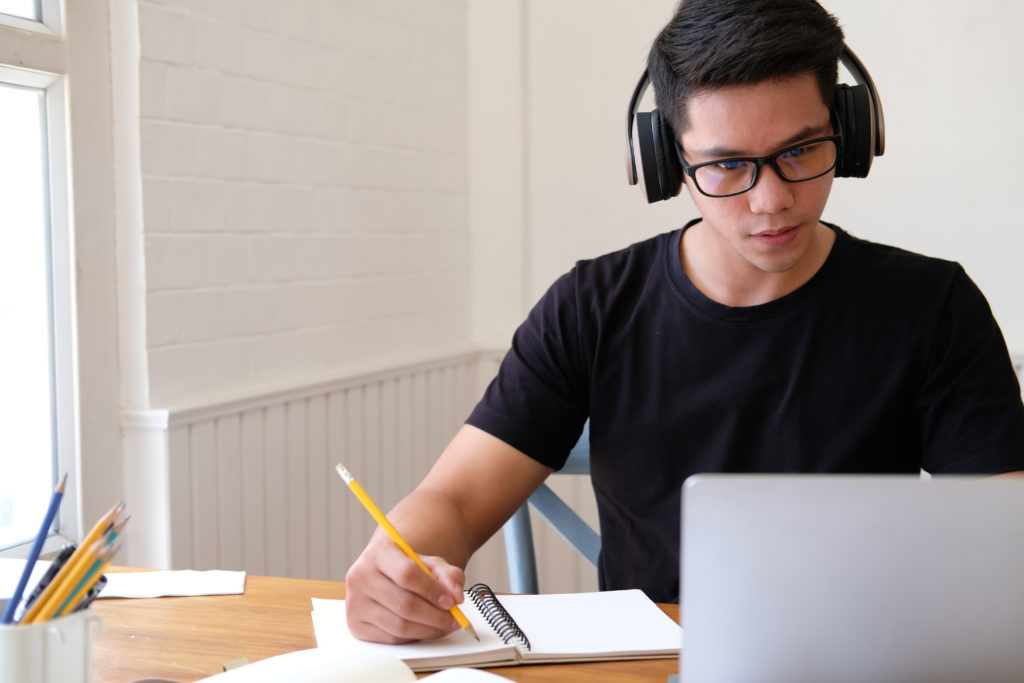Quick Hits
Daily brief research updates from the cognitive sciences

Studying online
We’d all like to be able to learn easily. Read something and remember it, listen in on a call and never forget anything, but we all know, well the vast majority of us, that it isn’t always that easy. Over the years and decades many practises have also been developed to help learning, ranging from learning in your sleep to meditative methods. But do these really help?
Well, this is what Shana Carpenter et al. of Iowa State University wanted to find out. To do this they reviewed and analysed over 200 studies ranging over 100 years to find some clear answers. And the results?
The results show that basically two strategies are the most effective and therefore the most important.
These are not sexy new techniques – in fact quite boring. They are spacing and retrieval practice. That’s it!
Spacing is the concept of spacing learning out into more bite-sized chunks. For example, in one study medical students received training on surgery training over three weeks vs. one intensive day. Those in the spaced learning group performed better one week after training had finished but also, importantly, one year later.
I have reviewed spaced, or punctuated, learning previously. I have also reported on brain processes and fatigue during mini learning and break phases (here and here).
The second technique is also a low tech, old-fashioned, and effortful: the technique of learning retrieval. This simply means trying to remember what you have learned. This is the high effort version and probably the one we also try to avoid, particularly when by ourselves. This is more effective than the easy method which is just rereading your notes or the textbook again. The important part seems to be the active retrieval part, actually making an effort to get it out again.
So, this on one hand is a bit boring, no new sexy techniques. It is also really important – two simple techniques will improve learning for anyone and anyone can do it!
So, if learning something new, space it out it bite-sized chunks, and make an effort to remember what you covered and learned.
That’s it, that simple.
Now let’s see if I can remember what I have just written…

Andy Habermacher
Andy is author of leading brains Review, Neuroleadership, and multiple other books. He has been intensively involved in writing and research into neuroleadership and is considered one of Europe’s leading experts. He is also a well-known public speaker, speaking on the brain and human behaviour.
Andy is also a masters athlete (middle distance running) and competes regularly at international competitions (and holds a few national records in his age category).
References
Shana K. Carpenter, Steven C. Pan, Andrew C. Butler.
The science of effective learning with spacing and retrieval practice.
Nature Reviews Psychology, 2022; 1 (9): 496
DOI: 10.1038/s44159-022-00089-1
More Quick Hits
COVID on the Brain
Many COVID-19 patients have reported various neurological symptoms – the well-known brain fog, but also headaches and decreased cognitive function over months and extended periods of time. This even without serious infection or hospitalization. The research seems to...
Life satisfaction after work related to personality traits
As many of you know I have done plenty of work into personality and so found this study interesting. Dusanee Kesavayuth of Kasetsart University in Bangkok, Thailand analysed data from 2,000 adults aged between 50 and 75 in the British Household Panel Survey and found...
Unique regulation of brain in yoga practitioners
Quick HitsDaily brief research updates from the cognitive sciences es, you yoga practitioners knew you were special and here is the science to prove it! In this older study I came across (2018) participants were recruited to see how they dealt with...
Neurodivergence and the lonely brain
Quick HitsDaily brief research updates from the cognitive sciences eurodivergence is term that describes those that are not “neurotypical” such as those with autism and ADHD. In the surge of research into loneliness spurred by the pandemic it has...
Art Engages the Social brain
Quick HitsDaily brief research updates from the cognitive sciences reported in last week’s Quick Hits on how engaging in the arts has a relationship with self-control and avoidance of disagreeable and criminal behaviour and that is why this...
Swearing can increase strength, self-confidence, and risky behaviour
Quick HitsDaily brief research updates from the cognitive sciences wearing is frowned upon in many circumstances but is also used by many people in casual situations and particularly by comedians. So why do we swear if it is taboo? A team of...






